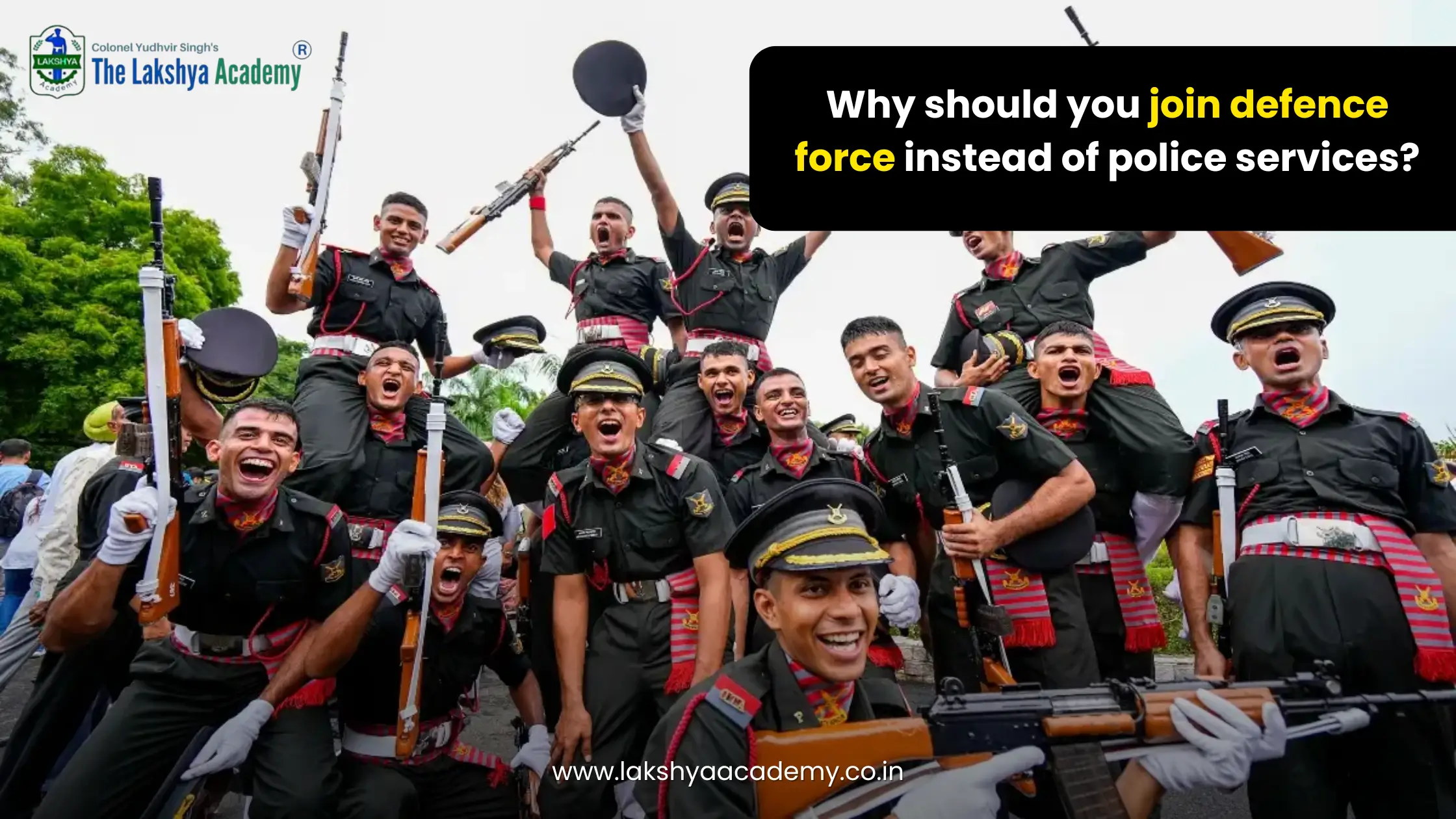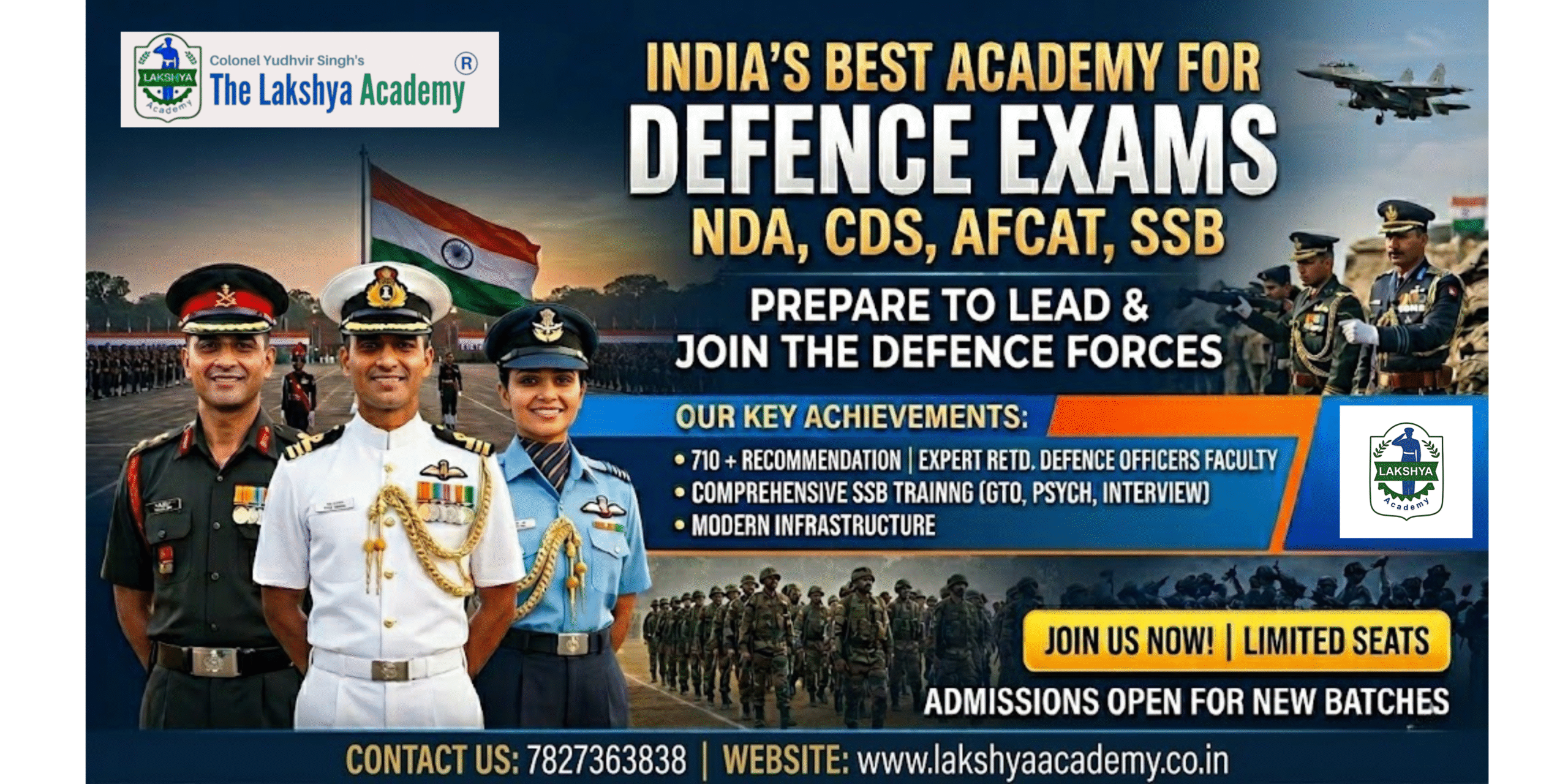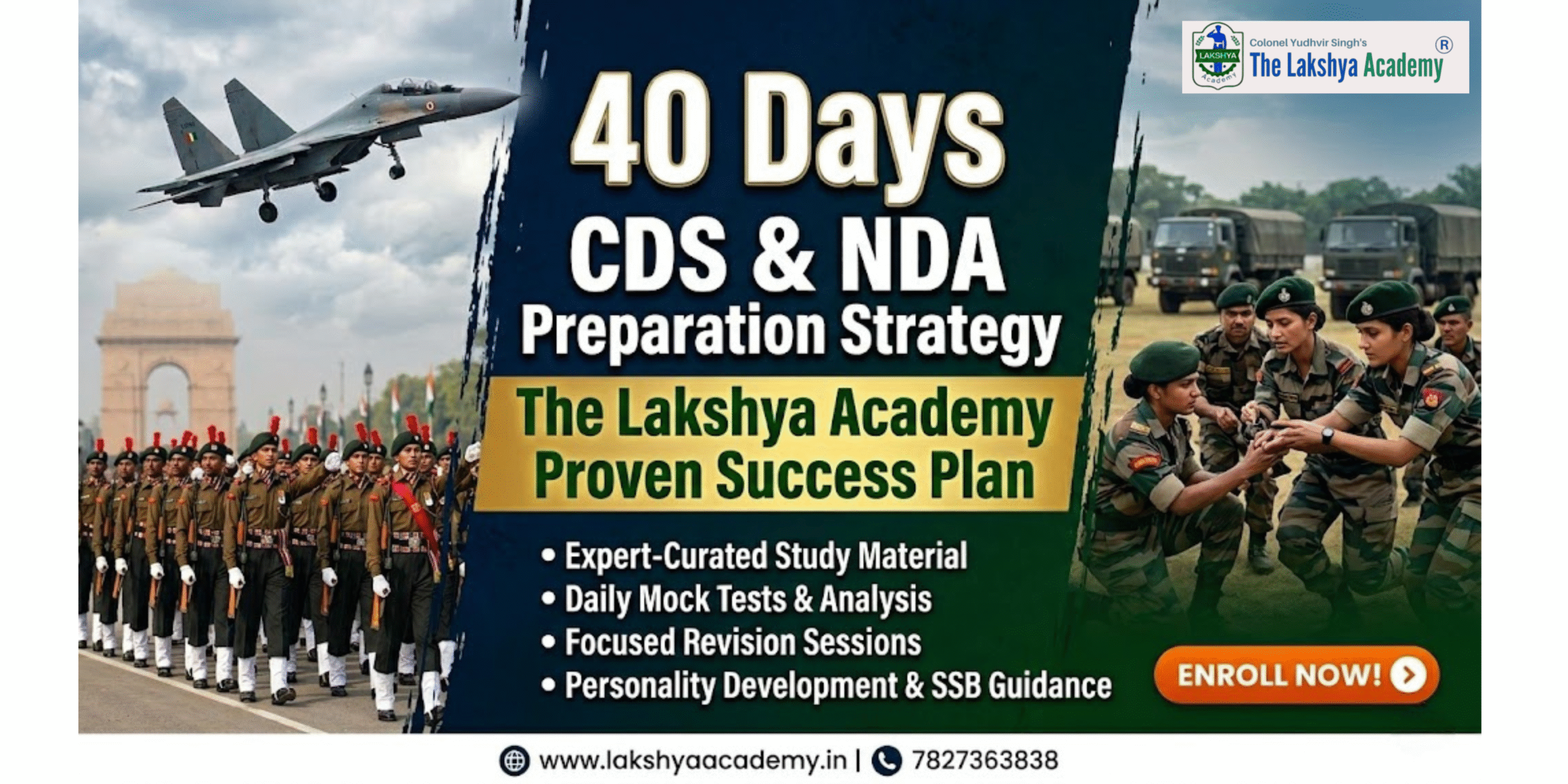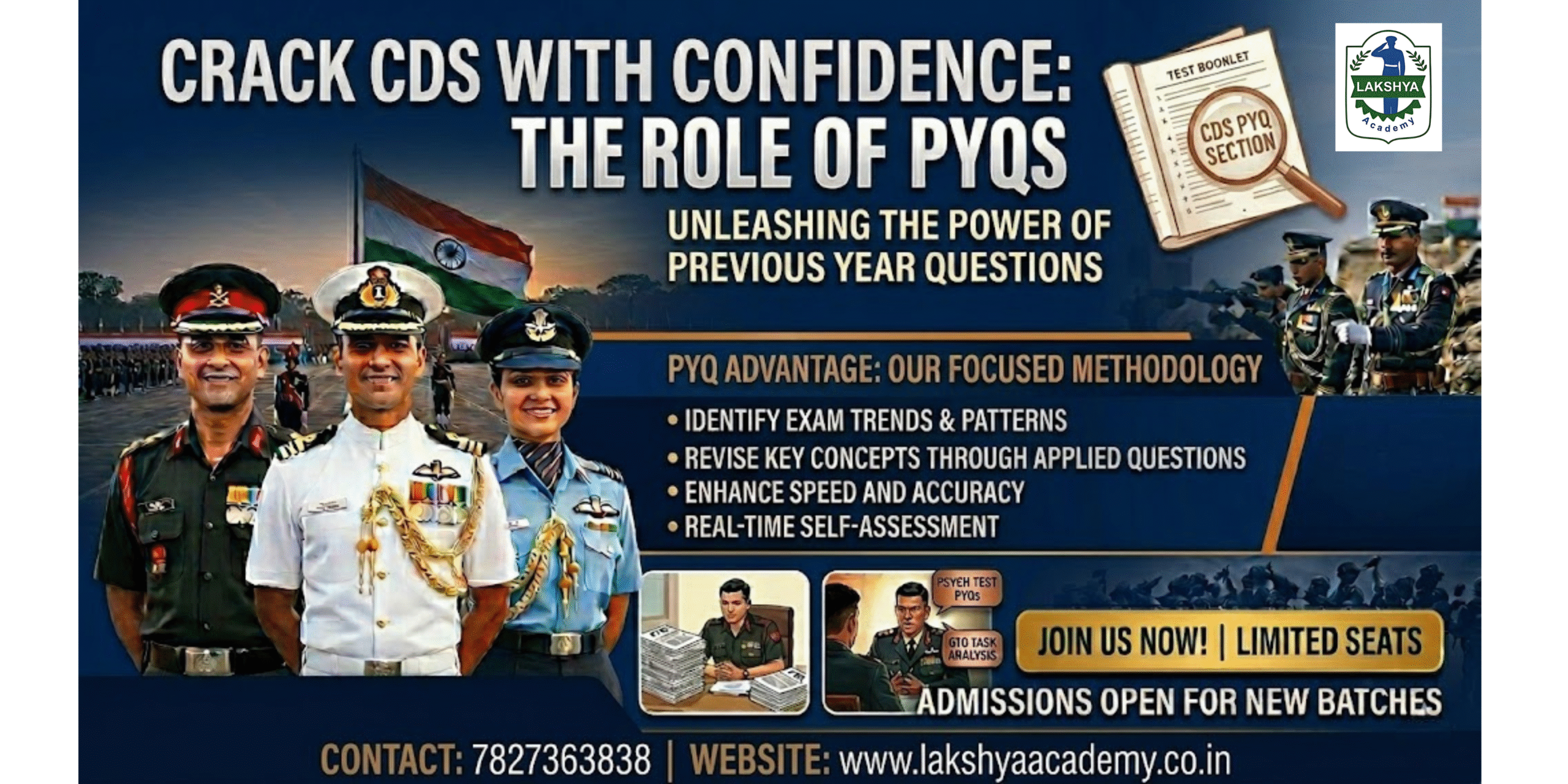Joining the Indian Defence Forces (Army, Navy, or Air Force) versus the Indian Police Service (IPS) depends on your personal goals, values, and career aspirations. Both are prestigious and serve the nation, but they differ in roles, responsibilities, and lifestyle. Here’s a concise comparison to help you decide why you might choose the Armed Forces over the IPS:
Why Join the Indian Defence Forces?
National Defense and Global Impact:
• The Armed Forces protect India’s sovereignty against external threats and operate on international borders, in conflict zones, or during global peacekeeping missions (e.g., UN missions).
• If you’re passionate about defending the nation at the highest level and engaging in strategic operations, the military offers a broader scope compared to the IPS’s focus on internal law enforcement.
Diverse and Dynamic Roles:
• Military officers engage in combat operations, disaster relief (e.g., floods, earthquakes), counter-terrorism, and specialized roles like aviation, naval warfare, or cyber operations.
• The Armed Forces offer opportunities to work with cutting-edge technology (e.g., fighter jets, submarines, drones) and train in diverse environments (mountains, deserts, seas).
Adventure and Discipline:
• The military lifestyle is physically demanding, with rigorous training at institutions like the National Defence Academy (NDA) or Indian Military Academy (IMA). It appeals to those who thrive on adventure, outdoor challenges, and a disciplined regimen.
• You’ll serve in varied terrains, from Siachen’s glaciers to Andaman’s coasts, offering a unique lifestyle compared to the urban or semi-urban postings typical in the IPS.
Camaraderie and Esprit de Corps:
• The Armed Forces foster a strong sense of brotherhood and unit loyalty, often described as a “family” bond. This is especially appealing if you value teamwork and lifelong connections.
• The military’s hierarchical yet cohesive culture contrasts with the IPS, where officers often work with civilian bureaucracies and face public scrutiny.
Perks and Lifestyle:
• Military officers enjoy benefits like subsidized housing, free medical care, canteen facilities, and allowances for remote postings (e.g., Siachen Allowance).
• Post-retirement, officers get pensions, and many transition to corporate or government roles, leveraging their leadership skills.
• Frequent transfers to diverse locations offer exposure to India’s geography and cultures, unlike the IPS, where postings are often state-specific.
International Exposure:
• The Armed Forces provide opportunities for international training, joint exercises (e.g., with the US, Russia), and defense diplomacy, offering global exposure not typically available in the IPS.
Early Leadership Opportunities:
• As a military officer, you lead troops from a young age (e.g., commanding a platoon in your 20s). This hands-on leadership in high-stakes environments builds exceptional skills, unlike the administrative focus in early IPS roles.
Why the Indian Police Service Might Be Less Appealing (in Comparison)?
Internal Law and Order Focus:
• The IPS deals with crime, public safety, and law enforcement within India, often in urban or rural settings. If you prefer strategic or defense-oriented roles, the military aligns better.
• IPS officers frequently manage public protests, political pressures, and bureaucratic challenges, which can be less appealing if you seek operational autonomy.
Civilian Interface and Public Scrutiny:
• IPS officers interact closely with civilians, politicians, and media, which can involve navigating complex socio-political dynamics. The Armed Forces, by contrast, operate in a more insulated, disciplined environment.
Work Environment:
• Police work often involves long hours in high-crime areas, dealing with issues like corruption or public unrest. While challenging, it lacks the military’s structured, adventure-driven ethos.
Training and Lifestyle:
• IPS training at the Sardar Vallabhbhai Patel National Police Academy is rigorous but focuses on law, investigation, and public administration. Military training is more physically intense and combat-oriented, appealing to those seeking action.
Key Considerations
- Personal Inclination: If you’re drawn to adventure, combat, or international defense, the Indian Defence Forces are ideal. If you prefer domestic law enforcement and public administration, the IPS may suit you better.
- Physical Demands: The military requires peak fitness and resilience for extreme conditions (e.g., -40°C in Siachen). The IPS demands mental agility and stress management but is less physically extreme.
- Entry Pathways:
• Armed Forces: Join via NDA (post-Class 12), CDS (post-graduation), or technical entries. Exams and SSB interviews test aptitude, leadership, and fitness.
• IPS: Requires clearing the UPSC Civil Services Exam, followed by training. The process is highly competitive, with a focus on academics and interviews. - Long-Term Goals: The Armed Forces offer early retirement options (after 20 years), enabling second careers. IPS officers often serve until 60, with opportunities in state or central government roles.
Data Points - Armed Forces:
• Strength: ~1.4 million active personnel (2023 data).
• Entry exams: NDA (~4 lakh applicants yearly, ~400 selected); CDS (~2 lakh applicants, ~600 selected).
• Starting pay: ~₹56,100/month (Lieutenant, Pay Level 10) + allowances. - IPS:
• Strength: ~4,900 officers (2023 data).
• UPSC CSE: ~10 lakh applicants, ~150–200 selected for IPS annually.
• Starting pay: ~₹56,100/month (SP, Pay Level 10) + allowances.
Conclusion
Choose the Indian Defence Forces if you’re passionate about defending India’s borders, crave adventure, value discipline, and seek diverse, high-stakes roles with global exposure. The IPS is better suited for those interested in internal security, law enforcement, and public administration. Reflect on your priorities—adventure vs. governance, combat vs. crime control—and align with what excites you most.





